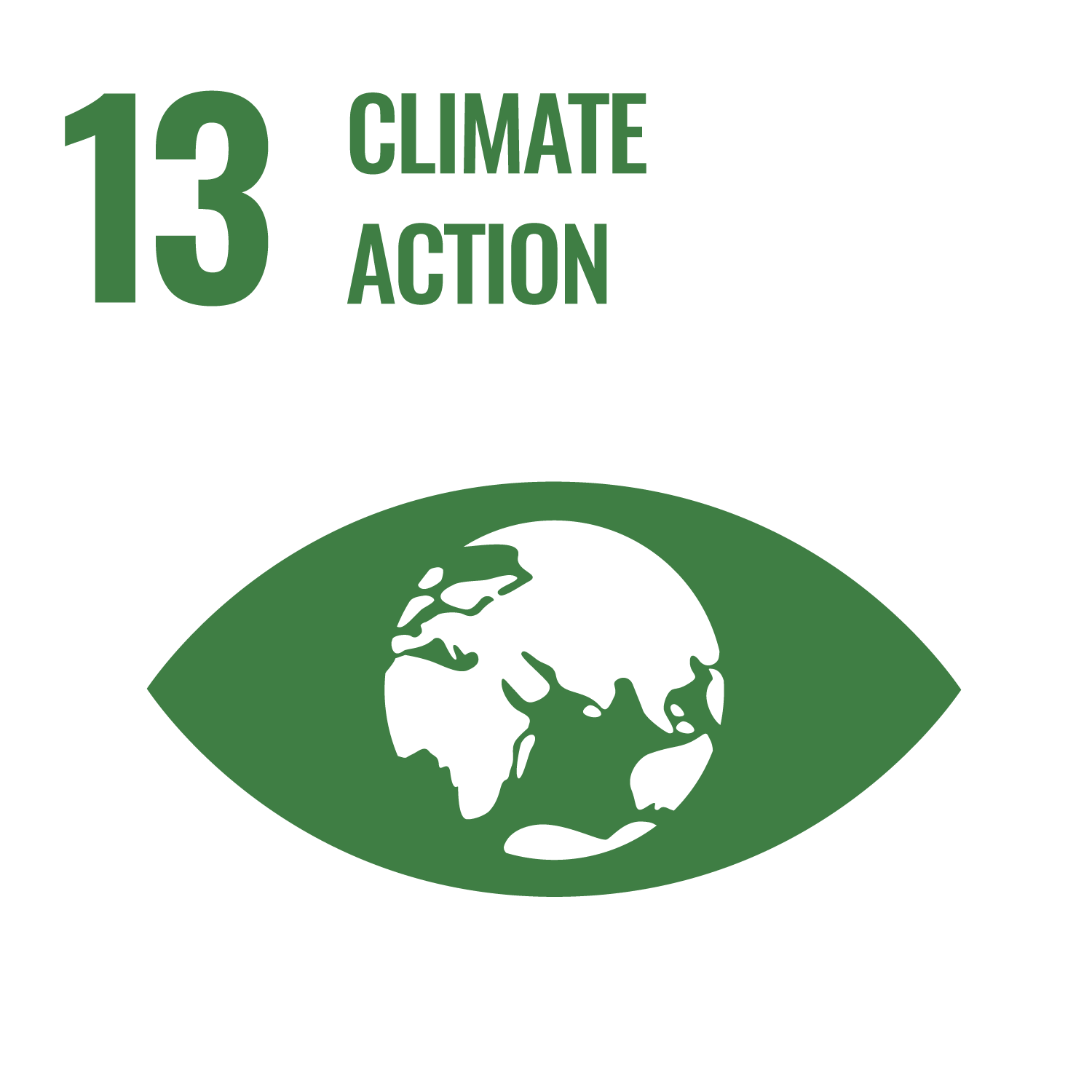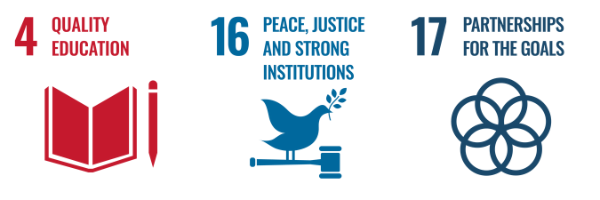
Environmental research infrastructures in general, and ICOS in particular, generate important knowledge on our ecological life support systems, which provide priceless services. This is especially evident in the field of greenhouse gas management; if we do not reach our safe climate change target level due to inadequate mitigation, climate change will lead to extremely large societal costs caused by adaptation efforts, losses and damages.
ICOS has several socioeconomical impacts embedded to its missions statements. Greenhouse gas observations are essential in supporting efforts towards the fulfilment of the Paris Agreement aimed at mitigating climate change and in contributing to timely information relevant to greenhouse gas policy and decision making. As the key European contributor to these observations, ICOS has important social and economical impact in Europe and beyond.
We support the UN Sustainable Development Goals
The Sustainable Development Goals (SDGs) adopted by the United Nations (UN) in 2015 are global goals set to solve economic, social and environmental challenges by 2030. We contribute to these SDGs in many ways.
At the core: Climate action
ICOS contributes directly to the UN SDG 13 ‘Climate Action’ by providing harmonised, high-quality greenhouse gas (GHG) measurements across Europe. Monitoring GHG emissions and removals is vital to achieve carbon neutrality. Our data along with excellence climate science and active international dialogue enable informed decision-making for global climate strategies.
Sustainable Development Goal we support:

In addition, ICOS contributes to several other SDGs in two key impact areas:
Scientific excellence
ICOS provides FAIR (Findable, Accessible, Interoperable, Reusable) data for scientists, students, citizens and policy makers. They support research and innovation to adapt agriculture, water management, energy provision and city planning to the challenges related to climate change and its impacts.
Sustainable Development Goals we support:

Societal impact
Scientific excellence generates societal impact. Reliable ICOS data on GHG fluxes support evidence-based policy making on climate adaptation and mitigation. Our direct cooperation with UN organisations such as the World Meteorological Organization (WMO), as well as science partnerships around the world support education and strong institutions. We are an Observer Intergovernmental Organization (IGO) to the UNFCCC, which aims to reach global consensus on actions to mitigate and to adapt to climate change as outlined in the Paris Agreement.
Sustainable Development Goals we support:

Informing policy and decision makers
ICOS provides timely information relevant to greenhouse gas policy and decision making. The information supports climate change mitigation and fulfilment of the Paris Agreement. By actively taking part in activities dedicated to policy makers, ICOS advocates for decisions made based on the best available scientific knowledge.
ICOS is a key European contributor to the greenhouse gas observations of the Integrated Global Greenhouse Gas Information System (IG3IS) of the World Meteorological Organization (WMO). ICOS is also an Observer Intergovernmental Organization (IGO) to the United Nations Framework Convention on Climate Change (UNFCCC), which aims to reach global consensus on actions to mitigate and to adapt to climate change as outlined in the Paris Agreement.
ICOS provides data to the European Union's Earth observation programme, Copernicus. The data in the Copernicus service will be used, for example, by national weather services or private companies to improve air-pollution predictions and also to develop other data products using ICOS data, such as maps of fossil fuel emissions.
Impact through project collaboration
ICOS contributes to several projects, which in turn, can have a large impact on science, society and economy. Read more about the projects we are involved in at the Projects page.